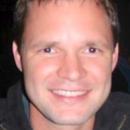SpringOne 2GX 2011
Chicago, October 25-28, 2011
Session Descriptions
Venkat Subramaniam - Founder of Agile Developer, Inc.
Spring into Unit Testing
Test Driving Development (TDD) is a valuable technique. However, unit testing is hard when your code has dependencies. This often becomes a quick excuse to give up on TDD. This example driven Zero Powerpoint (ZePo) presentation will help you Spring into unit testing.
Brian Sletten - Forward Leaning Software Engineer
Managing Spring Deployments with Maven
Now that you have built your Spring applications with all kinds of fancy beans, aspects, etc. you have to deploy it. Once it is deployed, you have to manage that deployment. How do you support different installation scenarios? How do you upgrade the whole system? How about just part of the system? Installing Jar files and Spring configurations by hand is so last century. Come see how you can use Maven to deploy, upgrade and rollback Spring configurations long before JSR 277 is available.
Restful Spring
You've seen how to build web applications with Spring. What if you also need to support data access and services to non-browser clients? You know how to do this with SOAP, but what about this REST stuff people are getting interested in? This talk will focus on exposing Spring code through RESTful interfaces.
Mark Richards - SOA and Integration Architect, Author of Java Message Service
Effective Java Persistence Using Spring and iBatis
More people are starting to turn to iBATIS as a viable persistence alternative to Hibernate and JPA. In this session you will learn why iBATIS is becoming so popular, how iBATIS differs from Hibernate and JPA (JSR-220), and how to use iBATIS as the persistence framework for Spring-based applications. Through interactive coding examples I will demonstrate how to configure and use iBATIS within Spring-based applications.
Eberhard Wolff - Co-author of "Server Component Patterns"
Meeting Requirements through Acceptance and Stress Testing
This just in! Dependency injection improves testability. What, you mean you already knew that? While the positive effects of dependency injection on unit testing are understood, loose coupling also facilitates system, acceptance, and load testing. In this session you'll learn how to do acceptance testing with Spring and a tool called FitNesse.
Myth Buster: Value Objects Are Evil
This session looks beyond the acronyms to distill the rationale behind the shift away from "anemic" domain models towards "rich" domain models. It explores several technical consequences that can arise when practicing DDD when dealing with large scale enterprise integration and SOA.
Erwin Vervaet - Originator of Spring Web Flow Project
Designing Stateful Web Application Control Flows
In this session Erwin will address the challenges of designing and implementing web application dialogs to support a rich user experience. You'll learn how to manage state, enforce a linear progression, prevent duplicate submits, and deal with browser navigational button use (such as the infamous back button problem).
Story Tellers: The 18th Month Battle: Bringing a Product to Market from the Ground up
In this "storytellers" Keith and Erwin speak from the heart about the 18th month journey leading Spring Web Flow from infancy to a stable, production-ready product. You'll gain insight into what the most difficult challenges were, and what sparked the most exciting design breakthroughs. You'll leave with lessons Keith and Erwin learned along the way.
Mike Stenhouse - Interface Designer and User Experience Consultant
Building Modern Web Apps
Web applications are the new rock and roll. Everyone seems to either have one already or be thinking about writing one. In this session Mike will take a helter skelter dash through some of the front-end technologies and techniques that can make your web interface better, including web standards, progressive enhancement and unobtrusive Javascript.
Bram Smeets - Senior Consultant at Interface21, Core Developer of Spring Modules and DWR
Practical Techniques to Improve the User Experience with Ajax & DWR
This session will focus on using DWR within a web application environment to add rich, dynamic behavior without the hassle of knowing the ins-and-outs of XmlHttpRequest.
The State of the Ajax Framework World
The Ajax framework world is abuzz, with over 130 frameworks battling it out to become the next big thing. Who's winning? Who's not? Where do the winning frameworks fit within Spring's web stack? Come to this session to get a "state of the union" on the Ajax framework world, and learn new opportunities for Ajax integration within your Spring-powered application.
Colin Sampaleanu - Original Spring Developer & Director of R&D, SpringSource
The Spring Value Proposition in the World of Java EE 5.0 and EJB 3.0
Spring 2.0, Java EE 5.0, EJB 3.0, how do they relate? This session compares and analyzes Spring 2.0 in the world of Java EE 5.0.
The New "Fat" Web Client Architecture: Benefits & Tradeoffs
With the advent of the Google Web Toolkit (GWT), Tibco's General Interface, Backbase and other similar frameworks, "fat clients" look to be making a comeback--this time on the web, with framework generated JavaScript running the show. Come to this session to see what this means to you.
Matt Raible - Sr. UI Architect and Creator of AppFuse
Rapid Fire Session - What's new in AppFuse 2.0
The 2.0 version of AppFuse is designed to make developing Java web applications with Spring much easier. By using and leveraging Maven 2, users will be able to quickly add/remove dependencies, as well as develop their applications quickly and efficiently from their favorite IDE. This release will includes a move to annotations, JSP 2.0 and Spring 2.0.
Arjen Poutsma - Founder & Project Lead for Spring Web Services
Pragmatic SOA: Substance Not Hype
The term "Service-Oriented Architecture" is very popular these days, but what does it mean exactly? Is SOA just an abbreviation for Same Old Architecture? And if it isn't, where does the old architecture fit in? In this session, we will cut through the SOA hype and get right to the substance.
Rolling out Web Services the Right Way with Spring-WS
In this presentation Arjen will show you how to implement a contract-first web service using Spring Web Services (WS). If you want to see how to implement standard, public, interoperable web services in Java "the right way" don't miss this session.
Alexandru Popescu - Chief Architect of InfoQ.com
The Design, Architecture, and Implementation of InfoQ.com
InfoQ.com is a next generation web app/portal implementation combining the latest advancements in portal technology (JSR 170) and web development (WebWork, Spring, AspectJ, DWR).
This session will walk the viewer through the good, the bad, and the ugly of building InfoQ.com. Walk with us from initial requirements (or lack theoreof), designs, implementation choices, and deployment issues, and all the lessons learned along the way.
Jeff Patton - Usability Expert with Thoughtworks
User Experience Distilled
User Interface Design, User Centered Design, Interaction Design, Information Architecture, Visual Design, Human Computer Interaction, and Usability Engineering: what do all these terms mean? And exactly what do you need to do to improve your users' experience with your software? Now more than ever the quality of user experience separates the successful software products from the failures.
Brian Oliver - Enterprise Solutions Architect at Tangosol
Enterprise Spring on a Data Grid: Beyond Clustering!
In this session Brian will introduce and examine the Data Grid paradigm, and together with Rob will demonstrate how Spring users may apply it to increase the availability, reliability, scalability and performance of their systems, while at the same time reducing system complexity and improving delivery.
Eamonn McManus - Technical Lead of the JMX Technology Team @ Sun
JMX Technology: Using it with Spring and how it is Evolving
The JMX (tm) API is a core part of the Java (tm) Standard Edition and Enterprise Edition platforms. The Spring Framework includes good support for JMX Technology in both those environments. In this session, the Specification Lead for the JMX API will present good practices for using JMX in your applications. He will also examine the Spring integration how best to exploit it.
Ross Mason - CTO of MuleSource, the creators of the open source Mule Integration Platform
The Role of Spring in an ESB
This session will offer a glimpse of a few technologies (scheduling, messaging, and remoting) within the context of an ESB. The content will be heavily example-based with a good deal of code. We will present a sample application built with Spring and Mule - a popular open source ESB engine.
Rapid Fire Session - Mule 2.0
In "Spring and the ESB" you learned how Enterprise Service Bus technology fits within the enterprise. Come to this session to learn the latest about Mule 2.0, a popular open-source ESB implementation.
Floyd Marinescu - Co-founder of Infoq.com
The Design, Architecture, and Implementation of InfoQ.com
InfoQ.com is a next generation web app/portal implementation combining the latest advancements in portal technology (JSR 170) and web development (WebWork, Spring, AspectJ, DWR).
This session will walk the viewer through the good, the bad, and the ugly of building InfoQ.com. Walk with us from initial requirements (or lack theoreof), designs, implementation choices, and deployment issues, and all the lessons learned along the way.
Trends in Enterprise Java
There are a number of trends occurring that are rapidly changing the way we think about and develop Enterprise Java applications. This talk will give an update on the most important trends affecting Java that you should be paying close attention to.
Jan Machacek - Co-author of "Pro Spring"
Real World Rules Engines - Why You Should Care
Rule engines have started to make an impact in the Java community. In this session, Jan will demonstrate situations where a rule engine can simplify an application's business logic. Jan will show typical examples of rules-based Spring applications and explain the principles behind each example.
Martin Lippert - Eclipse Committer, OSGi, AspectJ and Spring Integration Expert
Spring and Eclipse RCP
Eclipse as a Rich Client Platform is increasingly mainstream. Organizations from NASA to IBM to major banks and airlines have adopted RCP as a core platform for building their applications. In this talk we look at various current RCP usecases and examples and discuss the synergies with Spring.
Patrick Linskey - EJB Lead for Weblogic Server & Project Lead for OpenJPA
Where the JPA sidewalk ends: Tips and tricks for drawing outside the lines
This talk will discuss some of the areas not covered by the current version of the JPA specification and give examples of how to be successful "outside the lines" while still staying within the reach of the JPA framework.
Rapid Fire Session - Open JPA
Open JPA aims to be a fully compliant, enterprise grade open-source JPA implementation suitable for production use. Now that you've seen what the JPA specification is all about, come to this session to get started with Open JPA in a Spring enviornment.
Spring & the Java Persistence API (JPA)
The persistence part of EJB 3 (JSR 220) provides JPA, a standardized lightweight POJO persistence API for object/relational mapping. Today, your favorite ORMs such as Hibernate, Toplink, and Kodo are all now JPA implementations. To kick off the Enterprise track, this session will cover Spring's JPA support and the motivation behind it. It will demonstrate how Spring eases JPA development, testing, and deployment.
John Lewis - Core Developer of Spring Portlet MVC
Spring Portlets
In this session, Mark and John will give a tour of the Spring Portlet MVC framework. They will provide an in-depth review of a sample application developed using the Spring Portlet MVC framework. If you are using Spring in a Portlet environment, this session is for you.
Scott Leberknight - Chief Architect at Near Infinity
Spring, Hibernate, and JDBC Integration Patterns
Spring's Hibernate integration simplifies applications that use Hibernate by removing tedious and repetitive infrastructure code that you need to write. Spring JDBC achieves a similiar simplification for executing SQL statements using the lower level JDBC API. So when do you use one or the other, and what are the important usage guidelines? Come to this session to find out.
Guillaume LaForge - Head of Groovy Development for SpringSource
The Holy Grails of Web Frameworks
This session will introduce Grails, a new and innovative web framework based on a dynamic language, Groovy, with a solid foundation in off the shelf enterprise-ready frameworks such as Spring, Hibernate and SiteMesh.
Using Dynamic Languages with Spring
Use of scripting languages within a enterprise Java environment is on the rise. In this session Rod and Guillaume will examine practical scenarios where scripting adds value. You'll not only learn where dynamic languages such as Groovy fit, you'll also learn how to work with them effectively in a Spring environment.
Ramnivas Laddad - Author of AspectJ in Action, Principal at SpringSource
Applying Domain-Driven Design in the Enterprise with AspectJ
In this talk we will explore how to apply AOP and DI to implement a rich domain model. We will examine the need for domain driven design, technical obstacles in achieving it, and techniques to addressing those obstacles. This session will also present several examples that show the power behind the techniques.
AspectJ for Spring Developers
This talk introduces AspectJ to developers experienced with Spring and explains core AspectJ constructs. Attendees will learn the essentials of AspectJ and how to use it to create even simpler Spring-based applications.
With Power Comes Responsibility: Avoiding AOP Pitfalls
AspectJ provides powerful ways to modularize crosscutting concerns. With power comes responsibility. By the end of this presentation you will understand how to harness the power of AspectJ to develop clean, testable code while minimizing abuse.
Mike Keith - Co-specification lead of EJB 3.0, co-author of "Pro EJB 3: Java Persistence API"
Where the JPA sidewalk ends: Tips and tricks for drawing outside the lines
This talk will discuss some of the areas not covered by the current version of the JPA specification and give examples of how to be successful "outside the lines" while still staying within the reach of the JPA framework.
Spring & the Java Persistence API (JPA)
The persistence part of EJB 3 (JSR 220) provides JPA, a standardized lightweight POJO persistence API for object/relational mapping. Today, your favorite ORMs such as Hibernate, Toplink, and Kodo are all now JPA implementations. To kick off the Enterprise track, this session will cover Spring's JPA support and the motivation behind it. It will demonstrate how Spring eases JPA development, testing, and deployment.
Rod Johnson - Creator of Spring & Best Selling Author of J2EE without EJB
Spring & the Java Persistence API (JPA)
The persistence part of EJB 3 (JSR 220) provides JPA, a standardized lightweight POJO persistence API for object/relational mapping. Today, your favorite ORMs such as Hibernate, Toplink, and Kodo are all now JPA implementations. To kick off the Enterprise track, this session will cover Spring's JPA support and the motivation behind it. It will demonstrate how Spring eases JPA development, testing, and deployment.
System Integration Testing with Spring
By now you know that Dependency Injection facilitates unit testing. You also know you don't need Spring to properly unit test your code in isolation. However, when it comes to system integration testing Spring adds real value. Come to this highly-acclaimed session to experience the value in action.
Using Dynamic Languages with Spring
Use of scripting languages within a enterprise Java environment is on the rise. In this session Rod and Guillaume will examine practical scenarios where scripting adds value. You'll not only learn where dynamic languages such as Groovy fit, you'll also learn how to work with them effectively in a Spring environment.
Luke Hohmann - Founder & CEO, Enthiosys, Inc.
Speed Boats and Jacuzzis: Innovation Games(sm) for Customer Understanding
This hands on, "learning by doing" class describes 12 proven techniques for working with customers, and in the process understanding what your customers really want. They're fun, and they work.
Juergen Hoeller - Co-founder of the Spring Framework Project
Code Organization Guidelines for Large Code Bases
Structuring a large code base maintained by multiple teams working in parallel can be a real challenge. If you are not disciplined about code structure overtime you will end up with a tangled, unmaintainable mess that cannot adapt to change and risks ossifying into legacy. In this session Juergen will pull from his experiences working on large projects to provide important guidelines on code structure.
JMS in a Spring 2 Environment
This session will explore various usage styles for both synchronous and asynchronous JMS, illustrating the principles of using them in a Spring 2 environment. Both setup in a high-end J2EE server as well as setup with standalone providers will be illustrated.
Spring's Hidden Gems 2006
Juergen's popular "Hidden Gems" session returns newly updated for 2006. Come to this session for 10 hidden gems tucked away in Spring you might not know about but definitely should.
Transaction Management Strategies in Mission Critical Applications
Transactions are essential to ensuring the integrity of data stored in enterprise information systems. A core part of Spring's middle tier support is the transaction management support. This session presents several interesting "mission critical" cases and shows you how to properly handle them using transactions driven by Spring 2.
Rob Harrop - Core Spring developer and author of the best seller Pro Spring
Awesome Tools for Agile Spring Development
Come to this session to learn the tools, tips, and tricks Rob and Adrian use day-to-day to stay productive, and to have some fun in the process, too.
Enterprise Spring on a Data Grid: Beyond Clustering!
In this session Brian will introduce and examine the Data Grid paradigm, and together with Rob will demonstrate how Spring users may apply it to increase the availability, reliability, scalability and performance of their systems, while at the same time reducing system complexity and improving delivery.
Get your JRuby On
Ruby is a neat little language that is growing in popularity. JRuby is an effort to bring the Ruby language to the Java VM. Come to this session for some fun learning Ruby and using it within a Java environment.
Rapid Web Application Development Essentials
This session is not to be missed. In it Rob will discuss the essentials necessary for true rapid webapp development in today's Web 2.0 market. Once those are outlined he will present solutions that build on Spring's foundations.
The State of the Ajax Framework World
The Ajax framework world is abuzz, with over 130 frameworks battling it out to become the next big thing. Who's winning? Who's not? Where do the winning frameworks fit within Spring's web stack? Come to this session to get a "state of the union" on the Ajax framework world, and learn new opportunities for Ajax integration within your Spring-powered application.
Ben Hale - dm Server Team Core Developer
Myth Buster: Spring is XML Hell!
You may have heard it before, "Spring configuration is XML hell"! This session analyzes what's behind this statement to see if it holds water. In this "MythBuster" you'll learn practical techniques for managing (and in many cases reducing) the volume of configuration information for your Spring-based application.
Spring Fundamentals & Philosophy
When Rod Johnson wrote J2EE Design and Development he called J2EE "the best platform for enterprise development today", claiming the problem in those days wasn't J2EE itself but that it was "often used badly". In this session attendees will leave with an understanding of the big picture--the fundamentals that make Java and JEE application development work in practice. You will learn the foundations of the Spring Framework project and the principles of the developers and community behind it.
Mark Fisher - Spring Integration Lead
Message Driven POJOs Rock!
One of the most exciting new features of Spring 2.0 is its support for Message-Driven POJOs (MDPs). In this talk we will build a Message-Driven POJO sample application from the ground up.
Spring Portlets
In this session, Mark and John will give a tour of the Spring Portlet MVC framework. They will provide an in-depth review of a sample application developed using the Spring Portlet MVC framework. If you are using Spring in a Portlet environment, this session is for you.
The Role of Spring in an ESB
This session will offer a glimpse of a few technologies (scheduling, messaging, and remoting) within the context of an ESB. The content will be heavily example-based with a good deal of code. We will present a sample application built with Spring and Mule - a popular open source ESB engine.
Eric Evans - Author of 'Domain Driven Design"
An Introduction to Domain-Driven Design
For many software teams, complexity lies in the intricacy of the problem domain itself. Domain models provide a way to manage that complexity. In this session Eric Evans, the author of Domain-Driven Design, will set the tone for this track by sharing what DDD is all about.
Christian Dupuis - Lead, SpringSource Tool Suite and Spring IDE
The Spring Value Proposition in the World of Java EE 5.0 and EJB 3.0
Spring 2.0, Java EE 5.0, EJB 3.0, how do they relate? This session compares and analyzes Spring 2.0 in the world of Java EE 5.0.
Keith Donald - SpringSource Principal & Founding Partner
Story Tellers: The 18th Month Battle: Bringing a Product to Market from the Ground up
In this "storytellers" Keith and Erwin speak from the heart about the 18th month journey leading Spring Web Flow from infancy to a stable, production-ready product. You'll gain insight into what the most difficult challenges were, and what sparked the most exciting design breakthroughs. You'll leave with lessons Keith and Erwin learned along the way.
The Art of Domain Modeling
In this interactive session Keith and the audience will work together to craft the domain layer of a non-trivial business application using Domain-Driven Design (DDD) techniques. Attendees will learn techniques for distilling a domain layer from interactions with end users and domain experts. They will experience how a design translates to an implementation prototype powered by Spring.
The Building Blocks of Domain-Driven Design
This session covers the set of object-oriented patterns and best practices that makeup the foundational building blocks of Domain-Driven Design. Keith will quickly define each building block, then present a number of focused examples that show motivation and usage considerations. Attendees will leave equipped with a rich vocabulary for describing the structure of a software system, as well as an understanding of when to use these building blocks and how to use them effectively.
Adrian Colyer - CTO of SpringSource
Awesome Tools for Agile Spring Development
Come to this session to learn the tools, tips, and tricks Rob and Adrian use day-to-day to stay productive, and to have some fun in the process, too.
From Spring 1 to 2
This session provides a practical tour through what's new in Spring 2. If you are using Spring 1.x and seek the most bang for your buck when upgrading to Spring 2, this session is for you. If you are not yet using Spring this is the place to be to get a good overview of the latest developments.
Spring and OSGi by Adrian Colyer
Do you seek to to improve the modularity of your enterprise applications? Do you wish you could deploy multiple concurrent versions of services and applications? Do you require operational control over the lifecycle of key application components? Interested in building on a proven component technology? If so, Spring on OSGi could be just the thing for you.
Jim Clark - Solution Architect with Oracle
Designing For Multi-User, High Volume Applications in an Oracle Environment
This session focuses on showing how to get the most value out your Oracle DB in a high-volume Spring-based application using Toplink JPA. Designing for performance and concurrency will be discussed. If you are using Spring and Oracle together this talk is for you.
Jason Carreria - Core Developer of the Struts Action 2 Framework
JSR303 - Finally! Standard Validation
JSR-303 is a new specification for JavaBean validation. It will be used by upcoming revisions of specifications such as JSF and the Java Persistence API (JPA), as well as popular open source projects such as Struts 2, Spring, and Hibernate. Come and find out the current state of this important new specification from the Jason Carreira, the JSR-303 Specification Lead.
Ed Burns - Spec Lead for JSF; author of JSF 2.0: The Complete Reference
De-mystifying JSF
In this 90 minute session, Ed Burns will clear up the fog that sometimes surrounds people's understanding of this Web Application Development Framework. Ed is well suited to the task, having helped shape the design of JSF from its inception up to the present day. Upon leaving this session, the participant will know what JSF is good for, why it is good for these things, and how to be productive using it.
Jonas Boner - Founder AspectWerkz AOP Framework
Rapid Fire Session - Terracotta for Spring
How do you scale a Spring application beyond a single node? How can you guarantee high-availability, eliminate single points of failure and make sure that you meet your customer SLAs? Come to this session to see the Terracotta solution to these problems.
Ron Bodkin - Chief Software Architect, Quantcast
Using Glassbox to Monitor Spring Application Performance
In this session you will learn how the Glassbox open source troubleshooting and monitoring agent supports low overhead management and troubleshooting without needing to "bake in" instrumentation up front. Glassbox provides an automated installer and discovers common application components, such as Spring MVC controllers. It then reports on application performance and failures with an easy to use AJAX interface that gives concise summaries of common problems such as database failures, and slow operations caused by thread contention and excessive distributed calls. Glassbox also supports customization and detailed analysis for deeper investigation.
Shay Banon - Founder of the Compass Open Source Project
Rapid Fire Session- The Compass Search Engine Framework
Compass is an open source Java Search Engine framework, allowing the integration of search functionality into any application. One of Compass main modules is a Spring integration module, heavily used among Compass user base.
Ben Alex - Creator of Spring Security, Spring Roo & SpringSource Principal S/W Engineer
A Fast Hop into Real Object Oriented (ROO) Apps: Tech Case Study of a Real-World ROO App
In this presentation we will study a web application developed by a major Australian corporation. We say the application uses a "real object oriented", or ROO, architecture. That means we swapped out those anemic domain objects, fat services, and repetitive DAOs for rich domain objects that utilize transparent persistence and encapsulate business rules. If you are grappling with how to do this DDD stuff, this presentation will show you what worked and provide inspiration for your own projects.
Beyond Low-Hanging Fruit: Domain Object Access Control
In this presentation Ben distills domain object security in Acegi. You will learn the ACL architecture, common plug-in points, and how to structure your application to use hierarchical ACL services. You will see some of the key scalability and persistence issues involved when using ACLs.
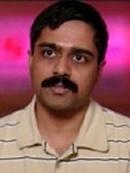 Founder of Agile Developer, Inc.
Founder of Agile Developer, Inc.
Dr. Venkat Subramaniam, founder of Agile Developer, Inc., has trained and mentored thousands of software developers in the US, Canada, Europe, and Asia. Venkat helps his clients effectively apply and succeed with agile practices on their software projects, and speaks frequently at international conferences and user groups. Venkat is also an adjunct faculty and teaches CS courses remotely at the University of Houston. He is author of ".NET Gotchas," coauthor of 2007 Jolt Productivity Award winning "Practices of an Agile Developer," author of "Programming Groovy: Dynamic Productivity for the Java Developer" and "Programming Scala: Tackle Multi-Core Complexity on the Java Virtual Machine" (Pragmatic Bookshelf).


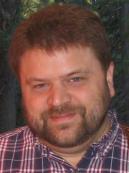 Forward Leaning Software Engineer
Forward Leaning Software Engineer
Brian Sletten is a liberal arts-educated software engineer with a focus on using and evangelizing forward-leaning technologies. He has a background as a system architect, a developer, a security consultant, a mentor, a team lead, an author and a trainer and operates in all of those roles as needed. His experience has spanned the online game, defense, finance, academic, hospitality, retail and commercial domains. He has worked with a wide variety of technologies such as network matrix switch controls, 3D simulation/visualization, Grid Computing, P2P and Semantic Web-based systems. He has a B.S. in Computer Science from the College of William and Mary. He is President of Bosatsu Consulting, Inc. and lives in Los Angeles, CA.
He focuses on web architecture, resource-oriented computing, social networking, the Semantic Web, scalable systems, security consulting and other technologies of the late 20th and early 21st Centuries.


 SOA and Integration Architect, Author of Java Message Service
SOA and Integration Architect, Author of Java Message Service
Mark Richards is a Director and Senior Architect at Collaborative Consulting, LLC, a Boston-based Business and Architecture Consulting Firm, where he is involved in the architecture, design, and implementation of SOA, EDA, messaging, and other architectures, primarily in the Java platform. Prior to joining Collaborative Mark was an Executive IT Architect with IBM, where he worked as an SOA and enterprise architect in the financial services area. He has been involved in the software industry since 1984 and has many battle scars to show for it. Mark served as the President of the Boston Java User Group in 1997 and 1998, and the President of the New England Java Users Group from 1999 thru 2003. Mark is the author of the book Java Message Service (2nd edition) from O'Reilly. He is also the author of Java Transaction Design Strategies, contributing author of the book 97 Things Every Software Architect Should Know from O'Reilly, contributing author of NFJS Anthology Volume 1, and contributing author of NFJS Anthology Volume 2. Mark has many architect and developer certifications, including those from IBM, Sun, The Open Group, and Oracle. He is a regular conference speaker at the No Fluff Just Stuff Symposium Series and speaks at other conferences and user groups around the world. When he is not working Mark can usually be found hiking with his wife and two daughters in the White Mountains or along the Appalachian Trail.


 Co-author of "Server Component Patterns"
Co-author of "Server Component Patterns"
Eberhard Wolff has worked with Java since 1996, mainly in enterprise applications. He co-authored "Server Component Patterns" and "Java Persistenz Strategien" (German). He is also author of the first German book on Spring, which is also the first book to cover Spring 2.0. He regularly contributes to conferences like JAX, W-JAX, JAOO and writes articles for several journals. Eberhard is also a founding member of the Java Champions.


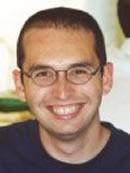 Originator of Spring Web Flow Project
Originator of Spring Web Flow Project
Erwin Vervaet is a software engineer with a keen interest in applying modern IT concepts and tools. He holds a master's degree in computer science from the Katholieke Universiteit Leuven in Belgium.
Erwin has been using Java since its inception and has extensive experience applying it in IT research, e-commerce projects, open source initiatives, industrial software systems and business support applications. He currently works as an independent consultant, running his own software and consultancy company: www.ervacon.com.
Erwin also enjoys teaching and speaking on Java and Spring related subjects. As the originator the Spring Web Flow project, he currently co-leads it's development together with Keith Donald. He also authored the first book entirely dedicated to Spring Web Flow: Working with Spring Web Flow.


 Interface Designer and User Experience Consultant
Interface Designer and User Experience Consultant
Mike spent several years doing the rounds in various London web agencies as a web standards and accessibility specialist, working for clients including Virgin, the BBC, the GLA, PriceWaterhouse Coopers, BusinessLink and Red Bull.
In pursuit of a broader interest in how and why people use the web Mike has settled into User Experience, helping to conceive and implement effective and usable user interfaces for web applications. When spare time presents itself Mike writes technical articles for Content with Style (contentwithstyle.co.uk), blogs on Donotremove (donotremove.co.uk) and Vitamin (thinkvitamin.com), and takes lots of photos (donotremove.co.uk/photos/).


 Senior Consultant at Interface21, Core Developer of Spring Modules and DWR
Senior Consultant at Interface21, Core Developer of Spring Modules and DWR
Bram is an enterprise java architect who started working with java since 1996 and J2EE since early 2000 and has been in the lead for numerous Agile development projects over the last years. He has been using Ajax since the summer of 2004 extensively in many projects. He has been working for JTeam and Interface21 since both were founded.
Currently, Bram is core developer for Spring Modules. Spring Modules aims at facilitating the integration between the Spring framework and other projects, without extending Spring's core. Furthermore, he is developer for DWR, a project that aims to provide easy AJAX for Java. His main focus is on the integration between DWR and Spring.
Apart from his passion for Java, Spring and Ajax he likes to travel the world with his beloved girlfriend Petra. His favorite destinations are the best scuba diving spots, which luckily happen to be the most beautiful parts of the world.


 Original Spring Developer & Director of R&D, SpringSource
Original Spring Developer & Director of R&D, SpringSource
Colin is Director of R&D at SpringSource (now a division of VMware), which he co-founded in 2004. He is one of the original core committers on the Spring Framework, a published author, and public speaker. Since starting SpringSource he has served in a number of roles throughout various parts of the organization, including Engineering, Service Delivery, Support, and Sales. Colin is at his best when combining both technical as well as business and customer facing aspects.
Colin has had a long and varied career spanning 23 years in both the enterprise and shrinkwrap software space, including previous experience developing for and building out a retail software company.
Immediately prior to SpringSource, Colin spent 5 years as architect/chief architect at a leading software incubator and VC firm. Colin's role was split between one part hands on architecture, design, and coding, another part mentoring and teaching best practices at the code and process level, and a final part performing technical due diligence and consulting for the VC arm.
Throughout his career, Colin's experience, wide ranging interests and general knowledge in the technology space have led him to be a resource that others have been able to draw on for advice. In general, Colin's background has left him with a deep knowledge of all it takes to successfully release good software, at the code, process, and business level.


 co-author of "Professional Java Development with the Spring Framework"
co-author of "Professional Java Development with the Spring Framework"
Thomas has been a developer on the Spring Framework project since early 2003, contributing to enhancements of the JDBC framework portion.
Thomas currently works as a consultant for SpringSource specializing in Java EE and database projects. He has been involved with developing database applications, both as a DBA and as an application developer for over 20 years, using a wide variety of languages and databases.
Thomas is co-author of "Professional Java Development with the Spring Framework" together with Rod Johnson, Juergen Hoeller, Alef Arendsen, and Colin Sampaleanu, published by Wrox in 2005.


 Sr. UI Architect and Creator of AppFuse
Sr. UI Architect and Creator of AppFuse
Matt Raible has been building web applications for most of his adult life. He started tinkering with the web before Netscape 1.0 was even released. For the last 13 years, Matt has helped companies adopt open source technologies (Spring, Hibernate, Apache, Struts, Tapestry, Grails) and use them effectively. Matt has been a speaker at many conferences worldwide, including ApacheCon, JavaZone, Colorado Software Summit, No Fluff Just Stuff, and a host of others.
Matt is an author (Spring Live and Pro JSP), and an active "kick-ass technology" evangelist on raibledesigns.com. He is the founder of AppFuse, a project which allows you to get started quickly with Java open source frameworks, as well as a committer on the Apache Roller and Apache Struts projects.
Matt has had quite a ride in the past few years, serving as the Lead UI Architect for LinkedIn, the UI Architect for Evite.com and the Chief Architect of Web Development at Time Warner Cable. Currently, he enjoys Utah's fluffy powder while consulting at Overstock.com.


 President of Tangosol
President of Tangosol
Cameron is president of Tangosol and has eight years of experience with
Java and Java-related technology. He is a frequent presenter at industry
conferences and has received a number of awards in recognition of his
contribution to the Java community. Cameron regularly participates in
industry standards development and is the specification lead for JSR 107
(jCache).


 Founder & Project Lead for Spring Web Services
Founder & Project Lead for Spring Web Services
Arjen Poutsma is a senior enterprise application architect with more than fifteen years' experience in commercial software environments. During this time he has worked with both J2EE and Microsoft .NET.
In 2004, Arjen started to specialise in Web Services and Service Oriented Architectures. During this period he has conducted trainings and has researched SOAs in large organisations.
Arjen is the founder and the project lead for the Spring Web Services. This Spring project aims at facilitating development of document-driven web services. Recently, Arjen worked on the REST support in Spring 3.0. Arjen has also contributed to various other open source projects, including XFire, NEO and others.
Since early 2005, Arjen has been a consultant for SpringSource in The Netherlands. Currently, he is a Software Engineer.


 Chief Architect of InfoQ.com
Chief Architect of InfoQ.com
Alex Popescu is Chief Architect and co-founder of InfoQ.com. Alex is interested in bleeding-edge technologies (AOP, advanced testing) and has been spending more and more time on various scripting languages.
Alex is involved in many open source initiatives, being co-founder of the TestNG testing framework and a committer on Groovy, WebWork and a couple more OSS projects. Alexandru formerly was one of three committers on the AspectWerkz project before it merged with AspectJ. Alexandru also publishes a blog on tech topics at http://themindstorms.wordpress.com.


 Founder Spring.NET
Founder Spring.NET
Dr. Mark Pollack has worked extensively in the financial sector as an architect and developer on various front office trading systems that involved a mixture of Microsoft and Java technologies. Always interested in best practices and improving the software development process, Mark has been a core Spring (Java) developer since 2003 and founded its Microsoft counterpart, Spring.NET, in 2004 which he continues to lead.
Prior to joining SpringSource, he was a founding partner at CodeStreet, LLC, an independent software vendor in the financial services industry. This year Mark has been recognized as a Microsoft Most Valuable Professional (MVP) for his involvement in the technical community.


 Usability Expert with Thoughtworks
Usability Expert with Thoughtworks
Jeff Patton has designed and developed software for the past 12 years on a wide variety of projects from on-line aircraft parts ordering to electronic medical records. Jeff has focused on Agile approaches since working on working on an early XP team in 2000. In particular Jeff has focused on the application of user centered design techniques to improve Agile requirements, planning, and products. Some of his recent writing on the subject can be found at www.abstractics.com/papers and in Alistair Cockburn’s Crystal Clear. Jeff’s currently a proud employee of ThoughtWorks.


 Enterprise Solutions Architect at Tangosol
Enterprise Solutions Architect at Tangosol
Brian Oliver is an Enterprise Solutions Architect at Tanosol, working with leading Financial Institutions in the US and Europe to implement massively scalable and high-performance Data Grid solutions.
Over the past 8 years, Brian has been leading the development of large-scale multi-language and multi-currency Internet, E-Commerce, Betting and Financial Java-based systems. As an early adopter of Java in 1996, he has experienced almost every facet of Java development and deployment, from single servers to large scale clusters. He is an experienced technical and enterprise level architect with a ruthless focus on product engineering, delivery and success.


 Technical Lead of the JMX Technology Team @ Sun
Technical Lead of the JMX Technology Team @ Sun
Éamonn McManus has been at Sun Microsystems since 1999, and has been technical lead of the JMX Technology team there since 2000. He is Specification Lead for JSRs 255 (JMX API 2.0) and 262 (Web Services Connector for JMX Agents). McManus has a BA and an MSc in Computer Science from Trinity College, Dublin. He is Irish, but lives and works in France and in French.


 CTO of MuleSource, the creators of the open source Mule Integration Platform
CTO of MuleSource, the creators of the open source Mule Integration Platform
Ross Mason is Co-founder and CTO of MuleSource, Inc., the creators of the open source Mule integration platform. Prior to founding MuleSource he was Chief Executive Officer of SymphonySoft Limited, an EU-based company providing services and support for large-scale integration projects. Mason founded the Mule project in 2003 and strived to make it the leading Java-based ESB and integration platform. Mule is used by top-tier financial institutions such as CitiGroup, JP Morgan and Deutsche Bank as well as many other high profile enterprises including American Airlines, Adobe and Yum Brands. Previously, Mason was Lead Architect for RaboBank and played a key role in developing one of the first large-scale ESB implementations in 2002. Mason has also worked with NatWest Bank, Credit Suisse and UBS. He holds a B.Sc. (Hons) in Computer Science from Bristol, UK.


 Co-founder of Infoq.com
Co-founder of Infoq.com
Floyd Marinescu is co-founder of InfoQ.com and was also previously the creator of TheServerSide.com and TheServerSide Java Symposium conferences. Floyd is the author of the best seller "EJB Design Patterns" (2002, John Wiley and Sons). Floyd also publishes a blog on Enterprise Java topics at http://dynamicsemantics.blog-city.com/.


 Co-author of "Pro Spring"
Co-author of "Pro Spring"
Jan Machacek graduated in Computer Science from the University of Hradec Kralove, Czech Republic and joined UK-based Cake Solutions in September 2002. Prior to this, Jan worked as a network administrator and programmer in Prague and has much experience in Internet and installation technologies.
Jan's role as Lead Developer at Cake Solutions sees him at the centre of all implementation-level details in all projects. In particular, Jan is often called upon to work on some of the most complex and challenging aspects of a system. Since joining Cake, Jan has proven his expertise in both Java and Microsoft .NET not only by taking on a wide variety of highly complex projects but also through his collection of published works covering both topics.
Jan co-authored the bestselling book Pro Spring with Rob Harrop in 2005.


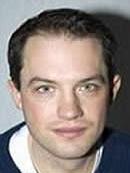 Eclipse Committer, OSGi, AspectJ and Spring Integration Expert
Eclipse Committer, OSGi, AspectJ and Spring Integration Expert
Martin is a consultant and coach at akquinet agile GmbH, a company located in Germany that is focused on agile software development. He received a master degree in Computer Science from the University of Hamburg and worked as intern as part of the AspectJ team at Xerox PARC back in '99. While he helps teams become more agile he also authors articles on rich client and server-side development with Eclipse and Eclipse runtime technology. He is involved as a committer in the Equinox Incubator project.
Martin is a frequent conference speaker. In addition to The Spring Experience, he is also speaking on Spring and OSGi combined at EclipseCon 2007.


 EJB Lead for Weblogic Server & Project Lead for OpenJPA
EJB Lead for Weblogic Server & Project Lead for OpenJPA
Patrick Linskey has been involved in object/relational mapping for 5+ years. As the founder and CTO of SolarMetric, Patrick drove the technical direction
of the company and oversaw the development of Kodo.
Now at BEA, he leads the EJB team in designing and implementation of the WebLogic Server EJB solution. Patrick is one of the leaders on the EJB3 and the JDO specification teams, and is BEA's representative on the EJB3 expert group. Patrick also leads the OpenJPA open source project in Apache.
Patrick is involved in several industry consortia, serving as a luminary on JDOcentral and as the moderator on forthcoming JavaPersistence.com. He has been the face of standards-based persistence, having evangelized JDO and EJB Persistence in hundreds of talks throughout the world including BEA's keynote at the 2006 JavaONE Conference. Patrick is co-author of Bitter EJB, and is on the JAOO Conference Program Committee. Patrick has also worked for TechTrader, MIT's Media Lab and Bank One in various technical roles. Under Patrick's leadership, Kodo has become the market leading JDO implementation with over 400 customers throughout the world spanning all industries, and is now the basis for the WebLogic Server EJB persistence provider. Patrick holds a B.S. in Computer Science from the Massachusetts Institute of Technology.


 Core Developer of Spring Portlet MVC
Core Developer of Spring Portlet MVC
John Lewis is the Chief Software Architect for Unicon Inc, the leading independent provider of open source training, consulting, and support in higher education. John is a 16 year veteran of the software engineering industry. His passions are large-scale enterprise architecture, open-source technologies, and agile software development methods. John has been working heavily in Java-based enterprise information portals since 2001 and is the lead developer of Spring Portlet MVC, which provides JSR 168 support in the Spring Framework. He is also active in several higher education open source communities, including uPortal and Sakai.


 Chief Architect at Near Infinity
Chief Architect at Near Infinity
Scott is Chief Architect at Near Infinity Corporation, an enterprise software development and consulting services company based in Reston, Virginia. He has been developing enterprise and web applications for 14 years professionally, and has developed applications using Java, Ruby, Groovy, and even an iPhone application with Objective-C. His main areas of interest include alternative persistence technologies, object-oriented design, system architecture, testing, and frameworks like Spring, Hibernate, and Ruby on Rails. In addition, Scott enjoys learning new languages to make himself a better and more well-rounded developer a la The Pragmatic Programmers' advice to "learn one language per year."
Scott holds a B.S. in Engineering Science and Mechanics from Virginia Tech, and an M. Eng. in Systems Engineering from the University of Maryland. Scott speaks at the No Fluff Just Stuff Symposiums and various other conferences. In his (sparse) spare time, Scott enjoys spending time with his wife, three children, and cat. He also tries to find time to play soccer, go snowboarding, and mountain bike whenever he can.


 Head of Groovy Development for SpringSource
Head of Groovy Development for SpringSource
As Head of Groovy Development for SpringSource, Guillaume Laforge is the official Groovy Project Manager, and the spec lead of JSR-241, the Java Specification Request that standardizes the Groovy dynamic language. He is also a frequent conference speaker presenting Groovy and Grails at JavaOne, SpringOne, QCon, the Sun TechDays, and JavaPolis. Guillaume also co-authored Groovy in Action along with Dierk König. Before founding G2One, which was acquired by SpringSource in late 2008, and taking the role of VP Technology, Guillaume worked for OCTO Technology, a consultancy focusing on architecture and agile methodologies. While at OCTO, Guillaume developed new offerings around Groovy and Grails for its customers.


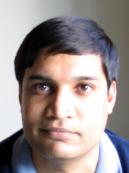 Author of AspectJ in Action, Principal at SpringSource
Author of AspectJ in Action, Principal at SpringSource
Ramnivas Laddad is a SpringSource Principal Enginner. He has over a decade of experience in applying his enterprise Java and aspect-oriented programming (AOP) expertise to middleware, design automation, networking, web application, user interface, and security projects.
Ramnivas Laddad is a well-known expert in enterprise Java, especially in the area of AOP and Spring. He is the author of AspectJ in Action, the best-selling book on AOP and AspectJ that has been lauded by industry experts for its presentation of practical and innovative AOP applications to solve real-world problems. Ramnivas, a Spring framework committer, is also an active presenter at leading industry events such as JavaOne, JavaPolis, No Fluff Just Stuff, SpringOne, Software Development, and has been an active member of both the AspectJ and Spring communities from their beginnings.


 Co-specification lead of EJB 3.0, co-author of "Pro EJB 3: Java Persistence API"
Co-specification lead of EJB 3.0, co-author of "Pro EJB 3: Java Persistence API"
Mike Keith has over 15 years of teaching, research and practical experience in object-oriented and distributed systems, specializing in object persistence. He was the co-specification lead for EJB 3.0 (JSR 220) and a member of the Java EE 5 expert group (JSR 244) and co-authored the premier JPA reference book called Pro EJB 3: Java Persistence API. He is currently an architect for Oracle TopLink and the Oracle OC4J Container and is a popular speaker at numerous conferences and events around the world.


 Creator of Spring & Best Selling Author of J2EE without EJB
Creator of Spring & Best Selling Author of J2EE without EJB
Rod is one of the world's leading authorities on Java and J2EE development. He is a best-selling author, experienced consultant, and open source developer, as well as a popular conference speaker.
Rod's best-selling Expert One-on-One J2EE Design and Development (2002) was one of the most influential books ever published on J2EE. The sequel, J2EE without EJB (July 2004, with Juergen Hoeller), has proven almost equally significant, establishing a comprehensive vision for lightweight, post-EJB J2EE development.
Rod has extensive experience as a consultant in a wide range of industries: principally, finance, media and insurance. He has specialized in server-side Java development since 1996. Prior to that, he worked mainly in C and C++.
His experience as a consultant has led him to see problems from a client's perspective as well as a technology perspective, and has driven his influential criticism of bloated, inefficient, orthodox approaches to J2EE architecture, which have delivered very poor results for stakeholders.
Rod is the founder of the Spring Framework, which began from code published with Expert One-on-One J2EE Design and Development. Along with Juergen Hoeller, he continues to lead the development of Spring.
He regularly speaks at conferences in the US, Europe and Asia, including the ServerSide Symposium (2003, 2004 and 2005), JavaPolis (Europe's leading Java conference), and JAOO (2004). Engagements in 2005 include two presentations at JavaOne 2005 and a keynote at the JavaWorld 2005 conference (Tokyo, June).
Rod serves in the JCP on the Expert Groups defining the Servlet 2.4 and JDO 2.0 specifications.
Rod continues to be actively involved in client projects at Interface21, as well as Spring development, writing and evangelism.


 Founder & CEO, Enthiosys, Inc.
Founder & CEO, Enthiosys, Inc.
Luke Hohmann, is the Founder and CEO of Enthiosys, Inc., a Silicon-Valley based software product management consulting firm. Luke is also the author of Innovation Games(sm): Creating Breakthrough Products Through Collaborative Play, Beyond Software Architecture: Creating and Sustaining Winning Solutions, and Journey of the Software Professional: A Sociology of Software Development. Luke graduated magna cum laude with a B.S.E. in Computer Engineering and an M.S.E in Computer Science and Engineering from the University of Michigan. While at Michigan he studied cognitive psychology and organizational behavior in addition to data structures and artificial intelligence. He is a former National Junior Pairs Figure Skating Champion and American College of Sports Medicine certified aerobics instructor. A member of the PDMA, ACM, and IEEE, in his spare time he enjoys rough housing with his four kids, his wife's cooking, and long runs in the Santa Cruz mountains (because he really does enjoy his wife's cooking).


 Co-founder of the Spring Framework Project
Co-founder of the Spring Framework Project
Juergen has been the most active Spring developer since the open source project began from Rod's Interface21 framework back in February 2003. Juergen and Rod together continue to provide the direction for Spring.
Juergen has earned great respect in the Spring and J2EE communities for his energy, the quality of his code, his incredible attention to detail, and his huge contribution in Spring forums and mailing lists.
Juergen is an experienced consultant, with outstanding expertise in web applications, transaction management, O/R mapping technologies, and lightweight remoting. He has specialized in J2EE since early 2000, having held technology leader positions in various projects ranging from enterprise application integration to web-based data visualization.


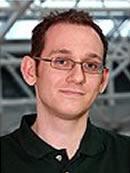 Core Spring developer and author of the best seller Pro Spring
Core Spring developer and author of the best seller Pro Spring
Rob Harrop is a respected speaker, author, entrepreneur and technologist.
As Lead Engineer of SpringSource dm Server, Rob is driving SpringSource's enterprise middleware product line and ensuring that the company continues to deliver high-performance, highly scalable
enterprise soutions. With a thorough knowledge of both Java and .NET, Rob has successfully deployed projects across both platforms. He has
extensive experience across a variety of sectors, in particular banking,retail and government. Prior to joining SpringSource, he co-founded UK-based software company Cake Solutions Limited and worked as Lead Developer for a successful dotcom start-up.
Rob is the author of five books, including Pro Spring, a widely acclaimed, comprehensive resource on the Spring Framework.
Rob is a member of the JCP and is involved in the JSR-255 Expert Group for JMX 2.0. Rob is an experienced, highly-sought after, technical speaker who can communicate complex topics in a way that any developer can understand. Over the past 3-4 years, Rob has also presented at JavaOne, QCon, AOSD, The Spring Experience, SpringONE, OSCon, and OreDev on a variety of topics to rave reviews.


 dm Server Team Core Developer
dm Server Team Core Developer
Ben Hale is a senior software engineer with Springsource and a core developer on the SpringSource dm Server project. Ben specializes in middleware development with using technologies such as OSGi and Aspect Oriented Programming as well as directing the build and release processes for all products in the Spring and SpringSource portfolios.
His interests include middle-tier architecture and effective build and release management strategies.
Prior to joining SpringSource, Ben spent several years leading teams in architecture and development of large-scale enterprise management applications for the telecommunications industry.


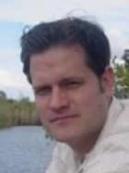 Spring Integration Lead
Spring Integration Lead
Mark Fisher is an engineer within the SpringSource division of VMware and lead of the Spring Integration project. He is also a committer on the core Spring Framework and the Spring BlazeDS Integration project. Mark has provided consulting services for clients across numerous industries, and he has trained hundreds of developers how to use the Spring Framework and related projects effectively. Mark speaks regularly at conferences and user groups in America and Europe.


 Author of 'Domain Driven Design"
Author of 'Domain Driven Design"
Eric Evans is the author of "Domain-Driven Design: Tackling Complexity in Software," Addison-Wesley 2004.
Since the early 1990s, he has worked on many projects developing large business systems with objects with many different approaches and many different outcomes. The book is a synthesis of that experience. It presents a system of modeling and design techniques that successful teams have used to align complex software systems with business needs and to keep projects agile as systems grow large.
Eric now leads "Domain Language", a consulting group which coaches and trains teams applying domain-driven design, helping them to make their development work more productive and more valuable to their business.


 Lead, SpringSource Tool Suite and Spring IDE
Lead, SpringSource Tool Suite and Spring IDE
Christian is a Principal Software Engineer for SpringSource and is the leader of the Tools Team responsible for SpringSource development tools including SpringSource Tool Suite. Since 2004 Christian has led the well known Spring IDE open source project that provides development tools for the Spring Portfolio based on Eclipse.
Christian has been developing Java enterprise applications since 1997. During this time, Christian designed complex software architectures with a focus on multi-tiered, web-based, client-server applications using enterprise Java technologies and the Spring Framework. Prior to joining SpringSource, Christian worked as consultant and project manager for one of the leading global technology consulting firms in the financial sector in central Europe.
Christian has presented on a variety of enterprise Java topics at conferences such as JAX, W-JAX, SpringOne and The Spring Experience.


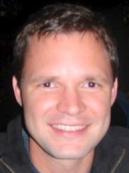 SpringSource Principal & Founding Partner
SpringSource Principal & Founding Partner
Keith Donald is a principal and founding partner at SpringSource, the company behind Spring and a division of VMware. At SpringSource, Keith is a full-time member of the Spring development team focusing on web application development productivity. He is also the architect behind SpringSource's state-of-the-art training curriculum, which has provided practical Spring training to over 10,000 students worldwide.
Over his career, Keith, an experienced enterprise software developer and mentor, has built business applications for customers spanning a diverse set of industries including banking, network management, information assurance, education, retail, and healthcare. He is particularly skilled at translating business requirements into technical solutions.


 CTO of SpringSource
CTO of SpringSource
Adrian Colyer is the CTO of SpringSource and has more than a dozen years of experience leading teams in Java and enterprise middleware.
Adrian Colyer is the leader of the AspectJ open source project and a well-known industry expert on the topic of aspect-oriented programming (AOP). He is a co-author of the book "Eclipse AspectJ : Aspect-Oriented Programming in Eclipse with AspectJ and AJDT," and has also published numerous book chapters, articles and published papers. His short essay, "AOP without the buzzwords" has been described as "the best explanation of AOP, ever."
In 2004, Adrian was recognized as one of the top 100 young innovators in the world by MIT Technology Review for his contributions to the development and adoption of aspect-oriented programming in industry.
Adrian founded the AspectJ Development Tools project (AJDT) on Eclipse.org in 2003, a project that continues to lead the world in providing IDE support for AOP. As leader of the AspectJ project, Adrian has overseen several releases of the compiler and designed and implemented many of the AspectJ 5 language extensions to support Java 5 features.
Prior to joining SpringSource, Adrian gained over a decade of experience in building enterprise middleware at IBM. Whilst there he oversaw the introduction of aspect-oriented programming to many IBM development teams.
Adrian holds a BSc, Computer Science from University of Southampton.


 Core Developer of the Struts Action 2 Framework
Core Developer of the Struts Action 2 Framework
Jason Carreira has been developing and architecting J2EE applications for 5 years. For the last 4 years he's been at Notiva designing and building an enterprise financial software package from the ground up. In his spare time, he is a core developer of the Struts Action 2 framework, as well as the XWork command pattern framework and WebWork 2.0 MVC web framework at OpenSymphony.
When he's not traveling for business, he lives in Rochester, NY with his wife Cyndy and three children.


 Spec Lead for JSF; author of JSF 2.0: The Complete Reference
Spec Lead for JSF; author of JSF 2.0: The Complete Reference
Ed Burns is currently a Senior Staff Engineer at Sun Microsystems, Inc. At Sun, Ed leads a team of web experts from across the industry in developing JavaServer™ Faces Technology through the Java Community Process and in open source. His areas of professional interests include web application frameworks, AJAX, reducing complexity, test driven development, requirements gathering, and computer supported collaborative work. Before working on JavaServer Faces, Ed worked on a wide variety of client and server side web technologies since 1994, including NCSA Mosaic, Mozilla, the Sun Java Plugin, Jakarta Tomcat, the Cosmo Create HTML authoring tool, and the web transport layer in the Irix operating system from Silicon Graphics.
Ed has a Bachelor of Computer Science degree from the University of Illinois at Urbana Champaign. While at UIUC, Ed took a minor in Germanic Studies and worked for IBM in the co-op program, where he first aquired a fondness for computer history by working on System 370 Office Software.
Ed has presented many times at Sun's JavaOne conference, given a keynote address at the W-JAX conference in Munich, Germany, and also has spoken at numerous Java User Group meetings. Further information and blogs may be found at http://purl.oclc.org/NET/edburns/.


 Founder AspectWerkz AOP Framework
Founder AspectWerkz AOP Framework
Jonas Bonér is working at Terracotta Inc. with a focus on strategy, product development & architecture and technical evangelism. Terracotta provides software that delivers enterprise-class infrastructure services to applications transparently at runtime with minimal required application code changes.
Prior to Terracotta, Jonas was a senior software engineer at the JRockit team at BEA Systems, where he was working on runtime tools, JVM support for AOP and technology evangelism.
He is the founder of the AspectWerkz AOP framework and committer to the Eclipse AspectJ 5 project. Jonas is a frequent speaker on AOP and
other emerging technologies (JavaOne, JAOO, eWorld, Java Pro Live!, Javapolis, AOSD conferences etc.).


 Chief Software Architect, Quantcast
Chief Software Architect, Quantcast
Ron Bodkin is the chief software architect of Quantcast, an open ratings service for Web sites. Ron is also the founder of New Aspects of Software, which provides consulting and training on aspect-oriented software development and effective architectures for Java. Ron is also the leader of the open source Glassbox application performance troubleshooting project.
Previously, Ron led the first implementation projects and training efforts for customers of the AspectJ group at Xerox PARC. Prior to that, Ron was a founder and the CTO of C-bridge, a consultancy that delivered enterprise applications using Java frameworks.


 Creator of the RSF framework
Creator of the RSF framework
Antranig Basman is designer and architect for RSF, an innovative and minimal open source Java web presentation framework, which is based on Spring. Antranig's original training was in Mathematics, but he has since branched out into biotechnological applications of software engineering, (Bayesian) statistical inference and machine intelligence systems (his PhD is in Information Engineering).
Antranig is director of Lucendo Development Ltd., which specialises in sustainable, open source development for the academic sector, and is currently based at the Centre for Applied Research in Educational Technologies (CARET) at the University of Cambridge.


 Founder of the Compass Open Source Project
Founder of the Compass Open Source Project
Shay is the founder of the Compass open source project, a unique solution enabling search capabilities into any application model. He started working on mission critical real time C/C++ systems, later moving to Java (and never looked back). Within the Java world, Shay has worked on a propriety implementation of a distributed rule engine(RETE) server, your typical Java based web projects, and messaging based projects within the financial industry. Currently, Shay is a System Architect at GigaSpaces, GigaSpaces provides a single platform for end-to-end scalability of high performance and stateful distributed applications. GigaSpaces’ unique approach enables developers to Write their business logic Once and then seamlessly Scale out the application linearly Anywhere.


 Lead of Spring LDAP
Lead of Spring LDAP
Mattias Arthursson is a senior consultant for Jayway, Sweden's leading Java consultancy firm. During his 11 years in the industry he has been working with system development on a wide variety of platforms and technologies, focusing on Java since 2000. Mattias is co-lead of Spring LDAP.


 Creator of Spring Security, Spring Roo & SpringSource Principal S/W Engineer
Creator of Spring Security, Spring Roo & SpringSource Principal S/W Engineer
Dr Ben Alex is a Principal Software Engineer with SpringSource, and has been working professionally in software since 1995. Ben founded the Spring Security project in 2003 and led its development into a popular, open-source security framework that is used in numerous government, banking and military installations. More recently Ben founded and serves as lead of the Spring Roo and Spring Shell projects, both of which deliver significant productivity and usability benefits to those using Spring technologies.
Ben's career history also includes other roles in software development and business. From 2005 until 2008, he led the establishment and exponential growth of SpringSource's operations in Asia-Pacific. Prior to SpringSource, Ben founded and grew a successful Australian software company, Acegi Technology Pty Limited. He has been a director and advisor to businesses in diverse industries including business services, intellectual property licensing and ecommerce.
In recent years, Ben has presented at technology conferences including JavaOne, The Server Side Java Symposium, JAOO, Oredev, SpringOne and The Spring Experience. He is a regular guest presenter at user groups across the world, with recent appearances in Sydney, Melbourne, Brisbane, Canberra, Perth, Singapore, Wellington, Auckland, Christchurch and Stockholm. He also authored the security chapter of the Wiley book, "Professional J2EE Development with Spring Framework," and maintains a blog at http://blog.springsource.com/main/author/bena/.


 Founder of Agile Developer, Inc.
Founder of Agile Developer, Inc.
Dr. Venkat Subramaniam, founder of Agile Developer, Inc., has trained and mentored thousands of software developers in the US, Canada, Europe, and Asia. Venkat helps his clients effectively apply and succeed with agile practices on their software projects, and speaks frequently at international conferences and user groups. Venkat is also an adjunct faculty and teaches CS courses remotely at the University of Houston. He is author of ".NET Gotchas," coauthor of 2007 Jolt Productivity Award winning "Practices of an Agile Developer," author of "Programming Groovy: Dynamic Productivity for the Java Developer" and "Programming Scala: Tackle Multi-Core Complexity on the Java Virtual Machine" (Pragmatic Bookshelf).


 Forward Leaning Software Engineer
Forward Leaning Software Engineer
Brian Sletten is a liberal arts-educated software engineer with a focus on using and evangelizing forward-leaning technologies. He has a background as a system architect, a developer, a security consultant, a mentor, a team lead, an author and a trainer and operates in all of those roles as needed. His experience has spanned the online game, defense, finance, academic, hospitality, retail and commercial domains. He has worked with a wide variety of technologies such as network matrix switch controls, 3D simulation/visualization, Grid Computing, P2P and Semantic Web-based systems. He has a B.S. in Computer Science from the College of William and Mary. He is President of Bosatsu Consulting, Inc. and lives in Los Angeles, CA.
He focuses on web architecture, resource-oriented computing, social networking, the Semantic Web, scalable systems, security consulting and other technologies of the late 20th and early 21st Centuries.


 SOA and Integration Architect, Author of Java Message Service
SOA and Integration Architect, Author of Java Message Service
Mark Richards is a Director and Senior Architect at Collaborative Consulting, LLC, a Boston-based Business and Architecture Consulting Firm, where he is involved in the architecture, design, and implementation of SOA, EDA, messaging, and other architectures, primarily in the Java platform. Prior to joining Collaborative Mark was an Executive IT Architect with IBM, where he worked as an SOA and enterprise architect in the financial services area. He has been involved in the software industry since 1984 and has many battle scars to show for it. Mark served as the President of the Boston Java User Group in 1997 and 1998, and the President of the New England Java Users Group from 1999 thru 2003. Mark is the author of the book Java Message Service (2nd edition) from O'Reilly. He is also the author of Java Transaction Design Strategies, contributing author of the book 97 Things Every Software Architect Should Know from O'Reilly, contributing author of NFJS Anthology Volume 1, and contributing author of NFJS Anthology Volume 2. Mark has many architect and developer certifications, including those from IBM, Sun, The Open Group, and Oracle. He is a regular conference speaker at the No Fluff Just Stuff Symposium Series and speaks at other conferences and user groups around the world. When he is not working Mark can usually be found hiking with his wife and two daughters in the White Mountains or along the Appalachian Trail.


 Co-author of "Server Component Patterns"
Co-author of "Server Component Patterns"
Eberhard Wolff has worked with Java since 1996, mainly in enterprise applications. He co-authored "Server Component Patterns" and "Java Persistenz Strategien" (German). He is also author of the first German book on Spring, which is also the first book to cover Spring 2.0. He regularly contributes to conferences like JAX, W-JAX, JAOO and writes articles for several journals. Eberhard is also a founding member of the Java Champions.


 Originator of Spring Web Flow Project
Originator of Spring Web Flow Project
Erwin Vervaet is a software engineer with a keen interest in applying modern IT concepts and tools. He holds a master's degree in computer science from the Katholieke Universiteit Leuven in Belgium.
Erwin has been using Java since its inception and has extensive experience applying it in IT research, e-commerce projects, open source initiatives, industrial software systems and business support applications. He currently works as an independent consultant, running his own software and consultancy company: www.ervacon.com.
Erwin also enjoys teaching and speaking on Java and Spring related subjects. As the originator the Spring Web Flow project, he currently co-leads it's development together with Keith Donald. He also authored the first book entirely dedicated to Spring Web Flow: Working with Spring Web Flow.


 Interface Designer and User Experience Consultant
Interface Designer and User Experience Consultant
Mike spent several years doing the rounds in various London web agencies as a web standards and accessibility specialist, working for clients including Virgin, the BBC, the GLA, PriceWaterhouse Coopers, BusinessLink and Red Bull.
In pursuit of a broader interest in how and why people use the web Mike has settled into User Experience, helping to conceive and implement effective and usable user interfaces for web applications. When spare time presents itself Mike writes technical articles for Content with Style (contentwithstyle.co.uk), blogs on Donotremove (donotremove.co.uk) and Vitamin (thinkvitamin.com), and takes lots of photos (donotremove.co.uk/photos/).


 Senior Consultant at Interface21, Core Developer of Spring Modules and DWR
Senior Consultant at Interface21, Core Developer of Spring Modules and DWR
Bram is an enterprise java architect who started working with java since 1996 and J2EE since early 2000 and has been in the lead for numerous Agile development projects over the last years. He has been using Ajax since the summer of 2004 extensively in many projects. He has been working for JTeam and Interface21 since both were founded.
Currently, Bram is core developer for Spring Modules. Spring Modules aims at facilitating the integration between the Spring framework and other projects, without extending Spring's core. Furthermore, he is developer for DWR, a project that aims to provide easy AJAX for Java. His main focus is on the integration between DWR and Spring.
Apart from his passion for Java, Spring and Ajax he likes to travel the world with his beloved girlfriend Petra. His favorite destinations are the best scuba diving spots, which luckily happen to be the most beautiful parts of the world.


 Original Spring Developer & Director of R&D, SpringSource
Original Spring Developer & Director of R&D, SpringSource
Colin is Director of R&D at SpringSource (now a division of VMware), which he co-founded in 2004. He is one of the original core committers on the Spring Framework, a published author, and public speaker. Since starting SpringSource he has served in a number of roles throughout various parts of the organization, including Engineering, Service Delivery, Support, and Sales. Colin is at his best when combining both technical as well as business and customer facing aspects.
Colin has had a long and varied career spanning 23 years in both the enterprise and shrinkwrap software space, including previous experience developing for and building out a retail software company.
Immediately prior to SpringSource, Colin spent 5 years as architect/chief architect at a leading software incubator and VC firm. Colin's role was split between one part hands on architecture, design, and coding, another part mentoring and teaching best practices at the code and process level, and a final part performing technical due diligence and consulting for the VC arm.
Throughout his career, Colin's experience, wide ranging interests and general knowledge in the technology space have led him to be a resource that others have been able to draw on for advice. In general, Colin's background has left him with a deep knowledge of all it takes to successfully release good software, at the code, process, and business level.


 co-author of "Professional Java Development with the Spring Framework"
co-author of "Professional Java Development with the Spring Framework"
Thomas has been a developer on the Spring Framework project since early 2003, contributing to enhancements of the JDBC framework portion.
Thomas currently works as a consultant for SpringSource specializing in Java EE and database projects. He has been involved with developing database applications, both as a DBA and as an application developer for over 20 years, using a wide variety of languages and databases.
Thomas is co-author of "Professional Java Development with the Spring Framework" together with Rod Johnson, Juergen Hoeller, Alef Arendsen, and Colin Sampaleanu, published by Wrox in 2005.


 Sr. UI Architect and Creator of AppFuse
Sr. UI Architect and Creator of AppFuse
Matt Raible has been building web applications for most of his adult life. He started tinkering with the web before Netscape 1.0 was even released. For the last 13 years, Matt has helped companies adopt open source technologies (Spring, Hibernate, Apache, Struts, Tapestry, Grails) and use them effectively. Matt has been a speaker at many conferences worldwide, including ApacheCon, JavaZone, Colorado Software Summit, No Fluff Just Stuff, and a host of others.
Matt is an author (Spring Live and Pro JSP), and an active "kick-ass technology" evangelist on raibledesigns.com. He is the founder of AppFuse, a project which allows you to get started quickly with Java open source frameworks, as well as a committer on the Apache Roller and Apache Struts projects.
Matt has had quite a ride in the past few years, serving as the Lead UI Architect for LinkedIn, the UI Architect for Evite.com and the Chief Architect of Web Development at Time Warner Cable. Currently, he enjoys Utah's fluffy powder while consulting at Overstock.com.


 President of Tangosol
President of Tangosol
Cameron is president of Tangosol and has eight years of experience with
Java and Java-related technology. He is a frequent presenter at industry
conferences and has received a number of awards in recognition of his
contribution to the Java community. Cameron regularly participates in
industry standards development and is the specification lead for JSR 107
(jCache).


 Founder & Project Lead for Spring Web Services
Founder & Project Lead for Spring Web Services
Arjen Poutsma is a senior enterprise application architect with more than fifteen years' experience in commercial software environments. During this time he has worked with both J2EE and Microsoft .NET.
In 2004, Arjen started to specialise in Web Services and Service Oriented Architectures. During this period he has conducted trainings and has researched SOAs in large organisations.
Arjen is the founder and the project lead for the Spring Web Services. This Spring project aims at facilitating development of document-driven web services. Recently, Arjen worked on the REST support in Spring 3.0. Arjen has also contributed to various other open source projects, including XFire, NEO and others.
Since early 2005, Arjen has been a consultant for SpringSource in The Netherlands. Currently, he is a Software Engineer.


 Chief Architect of InfoQ.com
Chief Architect of InfoQ.com
Alex Popescu is Chief Architect and co-founder of InfoQ.com. Alex is interested in bleeding-edge technologies (AOP, advanced testing) and has been spending more and more time on various scripting languages.
Alex is involved in many open source initiatives, being co-founder of the TestNG testing framework and a committer on Groovy, WebWork and a couple more OSS projects. Alexandru formerly was one of three committers on the AspectWerkz project before it merged with AspectJ. Alexandru also publishes a blog on tech topics at http://themindstorms.wordpress.com.


 Founder Spring.NET
Founder Spring.NET
Dr. Mark Pollack has worked extensively in the financial sector as an architect and developer on various front office trading systems that involved a mixture of Microsoft and Java technologies. Always interested in best practices and improving the software development process, Mark has been a core Spring (Java) developer since 2003 and founded its Microsoft counterpart, Spring.NET, in 2004 which he continues to lead.
Prior to joining SpringSource, he was a founding partner at CodeStreet, LLC, an independent software vendor in the financial services industry. This year Mark has been recognized as a Microsoft Most Valuable Professional (MVP) for his involvement in the technical community.


 Usability Expert with Thoughtworks
Usability Expert with Thoughtworks
Jeff Patton has designed and developed software for the past 12 years on a wide variety of projects from on-line aircraft parts ordering to electronic medical records. Jeff has focused on Agile approaches since working on working on an early XP team in 2000. In particular Jeff has focused on the application of user centered design techniques to improve Agile requirements, planning, and products. Some of his recent writing on the subject can be found at www.abstractics.com/papers and in Alistair Cockburn’s Crystal Clear. Jeff’s currently a proud employee of ThoughtWorks.


 Enterprise Solutions Architect at Tangosol
Enterprise Solutions Architect at Tangosol
Brian Oliver is an Enterprise Solutions Architect at Tanosol, working with leading Financial Institutions in the US and Europe to implement massively scalable and high-performance Data Grid solutions.
Over the past 8 years, Brian has been leading the development of large-scale multi-language and multi-currency Internet, E-Commerce, Betting and Financial Java-based systems. As an early adopter of Java in 1996, he has experienced almost every facet of Java development and deployment, from single servers to large scale clusters. He is an experienced technical and enterprise level architect with a ruthless focus on product engineering, delivery and success.


 Technical Lead of the JMX Technology Team @ Sun
Technical Lead of the JMX Technology Team @ Sun
Éamonn McManus has been at Sun Microsystems since 1999, and has been technical lead of the JMX Technology team there since 2000. He is Specification Lead for JSRs 255 (JMX API 2.0) and 262 (Web Services Connector for JMX Agents). McManus has a BA and an MSc in Computer Science from Trinity College, Dublin. He is Irish, but lives and works in France and in French.


 CTO of MuleSource, the creators of the open source Mule Integration Platform
CTO of MuleSource, the creators of the open source Mule Integration Platform
Ross Mason is Co-founder and CTO of MuleSource, Inc., the creators of the open source Mule integration platform. Prior to founding MuleSource he was Chief Executive Officer of SymphonySoft Limited, an EU-based company providing services and support for large-scale integration projects. Mason founded the Mule project in 2003 and strived to make it the leading Java-based ESB and integration platform. Mule is used by top-tier financial institutions such as CitiGroup, JP Morgan and Deutsche Bank as well as many other high profile enterprises including American Airlines, Adobe and Yum Brands. Previously, Mason was Lead Architect for RaboBank and played a key role in developing one of the first large-scale ESB implementations in 2002. Mason has also worked with NatWest Bank, Credit Suisse and UBS. He holds a B.Sc. (Hons) in Computer Science from Bristol, UK.


 Co-founder of Infoq.com
Co-founder of Infoq.com
Floyd Marinescu is co-founder of InfoQ.com and was also previously the creator of TheServerSide.com and TheServerSide Java Symposium conferences. Floyd is the author of the best seller "EJB Design Patterns" (2002, John Wiley and Sons). Floyd also publishes a blog on Enterprise Java topics at http://dynamicsemantics.blog-city.com/.


 Co-author of "Pro Spring"
Co-author of "Pro Spring"
Jan Machacek graduated in Computer Science from the University of Hradec Kralove, Czech Republic and joined UK-based Cake Solutions in September 2002. Prior to this, Jan worked as a network administrator and programmer in Prague and has much experience in Internet and installation technologies.
Jan's role as Lead Developer at Cake Solutions sees him at the centre of all implementation-level details in all projects. In particular, Jan is often called upon to work on some of the most complex and challenging aspects of a system. Since joining Cake, Jan has proven his expertise in both Java and Microsoft .NET not only by taking on a wide variety of highly complex projects but also through his collection of published works covering both topics.
Jan co-authored the bestselling book Pro Spring with Rob Harrop in 2005.


 Eclipse Committer, OSGi, AspectJ and Spring Integration Expert
Eclipse Committer, OSGi, AspectJ and Spring Integration Expert
Martin is a consultant and coach at akquinet agile GmbH, a company located in Germany that is focused on agile software development. He received a master degree in Computer Science from the University of Hamburg and worked as intern as part of the AspectJ team at Xerox PARC back in '99. While he helps teams become more agile he also authors articles on rich client and server-side development with Eclipse and Eclipse runtime technology. He is involved as a committer in the Equinox Incubator project.
Martin is a frequent conference speaker. In addition to The Spring Experience, he is also speaking on Spring and OSGi combined at EclipseCon 2007.


 EJB Lead for Weblogic Server & Project Lead for OpenJPA
EJB Lead for Weblogic Server & Project Lead for OpenJPA
Patrick Linskey has been involved in object/relational mapping for 5+ years. As the founder and CTO of SolarMetric, Patrick drove the technical direction
of the company and oversaw the development of Kodo.
Now at BEA, he leads the EJB team in designing and implementation of the WebLogic Server EJB solution. Patrick is one of the leaders on the EJB3 and the JDO specification teams, and is BEA's representative on the EJB3 expert group. Patrick also leads the OpenJPA open source project in Apache.
Patrick is involved in several industry consortia, serving as a luminary on JDOcentral and as the moderator on forthcoming JavaPersistence.com. He has been the face of standards-based persistence, having evangelized JDO and EJB Persistence in hundreds of talks throughout the world including BEA's keynote at the 2006 JavaONE Conference. Patrick is co-author of Bitter EJB, and is on the JAOO Conference Program Committee. Patrick has also worked for TechTrader, MIT's Media Lab and Bank One in various technical roles. Under Patrick's leadership, Kodo has become the market leading JDO implementation with over 400 customers throughout the world spanning all industries, and is now the basis for the WebLogic Server EJB persistence provider. Patrick holds a B.S. in Computer Science from the Massachusetts Institute of Technology.


 Core Developer of Spring Portlet MVC
Core Developer of Spring Portlet MVC
John Lewis is the Chief Software Architect for Unicon Inc, the leading independent provider of open source training, consulting, and support in higher education. John is a 16 year veteran of the software engineering industry. His passions are large-scale enterprise architecture, open-source technologies, and agile software development methods. John has been working heavily in Java-based enterprise information portals since 2001 and is the lead developer of Spring Portlet MVC, which provides JSR 168 support in the Spring Framework. He is also active in several higher education open source communities, including uPortal and Sakai.


 Chief Architect at Near Infinity
Chief Architect at Near Infinity
Scott is Chief Architect at Near Infinity Corporation, an enterprise software development and consulting services company based in Reston, Virginia. He has been developing enterprise and web applications for 14 years professionally, and has developed applications using Java, Ruby, Groovy, and even an iPhone application with Objective-C. His main areas of interest include alternative persistence technologies, object-oriented design, system architecture, testing, and frameworks like Spring, Hibernate, and Ruby on Rails. In addition, Scott enjoys learning new languages to make himself a better and more well-rounded developer a la The Pragmatic Programmers' advice to "learn one language per year."
Scott holds a B.S. in Engineering Science and Mechanics from Virginia Tech, and an M. Eng. in Systems Engineering from the University of Maryland. Scott speaks at the No Fluff Just Stuff Symposiums and various other conferences. In his (sparse) spare time, Scott enjoys spending time with his wife, three children, and cat. He also tries to find time to play soccer, go snowboarding, and mountain bike whenever he can.


 Head of Groovy Development for SpringSource
Head of Groovy Development for SpringSource
As Head of Groovy Development for SpringSource, Guillaume Laforge is the official Groovy Project Manager, and the spec lead of JSR-241, the Java Specification Request that standardizes the Groovy dynamic language. He is also a frequent conference speaker presenting Groovy and Grails at JavaOne, SpringOne, QCon, the Sun TechDays, and JavaPolis. Guillaume also co-authored Groovy in Action along with Dierk König. Before founding G2One, which was acquired by SpringSource in late 2008, and taking the role of VP Technology, Guillaume worked for OCTO Technology, a consultancy focusing on architecture and agile methodologies. While at OCTO, Guillaume developed new offerings around Groovy and Grails for its customers.


 Author of AspectJ in Action, Principal at SpringSource
Author of AspectJ in Action, Principal at SpringSource
Ramnivas Laddad is a SpringSource Principal Enginner. He has over a decade of experience in applying his enterprise Java and aspect-oriented programming (AOP) expertise to middleware, design automation, networking, web application, user interface, and security projects.
Ramnivas Laddad is a well-known expert in enterprise Java, especially in the area of AOP and Spring. He is the author of AspectJ in Action, the best-selling book on AOP and AspectJ that has been lauded by industry experts for its presentation of practical and innovative AOP applications to solve real-world problems. Ramnivas, a Spring framework committer, is also an active presenter at leading industry events such as JavaOne, JavaPolis, No Fluff Just Stuff, SpringOne, Software Development, and has been an active member of both the AspectJ and Spring communities from their beginnings.


 Co-specification lead of EJB 3.0, co-author of "Pro EJB 3: Java Persistence API"
Co-specification lead of EJB 3.0, co-author of "Pro EJB 3: Java Persistence API"
Mike Keith has over 15 years of teaching, research and practical experience in object-oriented and distributed systems, specializing in object persistence. He was the co-specification lead for EJB 3.0 (JSR 220) and a member of the Java EE 5 expert group (JSR 244) and co-authored the premier JPA reference book called Pro EJB 3: Java Persistence API. He is currently an architect for Oracle TopLink and the Oracle OC4J Container and is a popular speaker at numerous conferences and events around the world.


 Creator of Spring & Best Selling Author of J2EE without EJB
Creator of Spring & Best Selling Author of J2EE without EJB
Rod is one of the world's leading authorities on Java and J2EE development. He is a best-selling author, experienced consultant, and open source developer, as well as a popular conference speaker.
Rod's best-selling Expert One-on-One J2EE Design and Development (2002) was one of the most influential books ever published on J2EE. The sequel, J2EE without EJB (July 2004, with Juergen Hoeller), has proven almost equally significant, establishing a comprehensive vision for lightweight, post-EJB J2EE development.
Rod has extensive experience as a consultant in a wide range of industries: principally, finance, media and insurance. He has specialized in server-side Java development since 1996. Prior to that, he worked mainly in C and C++.
His experience as a consultant has led him to see problems from a client's perspective as well as a technology perspective, and has driven his influential criticism of bloated, inefficient, orthodox approaches to J2EE architecture, which have delivered very poor results for stakeholders.
Rod is the founder of the Spring Framework, which began from code published with Expert One-on-One J2EE Design and Development. Along with Juergen Hoeller, he continues to lead the development of Spring.
He regularly speaks at conferences in the US, Europe and Asia, including the ServerSide Symposium (2003, 2004 and 2005), JavaPolis (Europe's leading Java conference), and JAOO (2004). Engagements in 2005 include two presentations at JavaOne 2005 and a keynote at the JavaWorld 2005 conference (Tokyo, June).
Rod serves in the JCP on the Expert Groups defining the Servlet 2.4 and JDO 2.0 specifications.
Rod continues to be actively involved in client projects at Interface21, as well as Spring development, writing and evangelism.


 Founder & CEO, Enthiosys, Inc.
Founder & CEO, Enthiosys, Inc.
Luke Hohmann, is the Founder and CEO of Enthiosys, Inc., a Silicon-Valley based software product management consulting firm. Luke is also the author of Innovation Games(sm): Creating Breakthrough Products Through Collaborative Play, Beyond Software Architecture: Creating and Sustaining Winning Solutions, and Journey of the Software Professional: A Sociology of Software Development. Luke graduated magna cum laude with a B.S.E. in Computer Engineering and an M.S.E in Computer Science and Engineering from the University of Michigan. While at Michigan he studied cognitive psychology and organizational behavior in addition to data structures and artificial intelligence. He is a former National Junior Pairs Figure Skating Champion and American College of Sports Medicine certified aerobics instructor. A member of the PDMA, ACM, and IEEE, in his spare time he enjoys rough housing with his four kids, his wife's cooking, and long runs in the Santa Cruz mountains (because he really does enjoy his wife's cooking).


 Co-founder of the Spring Framework Project
Co-founder of the Spring Framework Project
Juergen has been the most active Spring developer since the open source project began from Rod's Interface21 framework back in February 2003. Juergen and Rod together continue to provide the direction for Spring.
Juergen has earned great respect in the Spring and J2EE communities for his energy, the quality of his code, his incredible attention to detail, and his huge contribution in Spring forums and mailing lists.
Juergen is an experienced consultant, with outstanding expertise in web applications, transaction management, O/R mapping technologies, and lightweight remoting. He has specialized in J2EE since early 2000, having held technology leader positions in various projects ranging from enterprise application integration to web-based data visualization.


 Core Spring developer and author of the best seller Pro Spring
Core Spring developer and author of the best seller Pro Spring
Rob Harrop is a respected speaker, author, entrepreneur and technologist.
As Lead Engineer of SpringSource dm Server, Rob is driving SpringSource's enterprise middleware product line and ensuring that the company continues to deliver high-performance, highly scalable
enterprise soutions. With a thorough knowledge of both Java and .NET, Rob has successfully deployed projects across both platforms. He has
extensive experience across a variety of sectors, in particular banking,retail and government. Prior to joining SpringSource, he co-founded UK-based software company Cake Solutions Limited and worked as Lead Developer for a successful dotcom start-up.
Rob is the author of five books, including Pro Spring, a widely acclaimed, comprehensive resource on the Spring Framework.
Rob is a member of the JCP and is involved in the JSR-255 Expert Group for JMX 2.0. Rob is an experienced, highly-sought after, technical speaker who can communicate complex topics in a way that any developer can understand. Over the past 3-4 years, Rob has also presented at JavaOne, QCon, AOSD, The Spring Experience, SpringONE, OSCon, and OreDev on a variety of topics to rave reviews.


 dm Server Team Core Developer
dm Server Team Core Developer
Ben Hale is a senior software engineer with Springsource and a core developer on the SpringSource dm Server project. Ben specializes in middleware development with using technologies such as OSGi and Aspect Oriented Programming as well as directing the build and release processes for all products in the Spring and SpringSource portfolios.
His interests include middle-tier architecture and effective build and release management strategies.
Prior to joining SpringSource, Ben spent several years leading teams in architecture and development of large-scale enterprise management applications for the telecommunications industry.


 Spring Integration Lead
Spring Integration Lead
Mark Fisher is an engineer within the SpringSource division of VMware and lead of the Spring Integration project. He is also a committer on the core Spring Framework and the Spring BlazeDS Integration project. Mark has provided consulting services for clients across numerous industries, and he has trained hundreds of developers how to use the Spring Framework and related projects effectively. Mark speaks regularly at conferences and user groups in America and Europe.


 Author of 'Domain Driven Design"
Author of 'Domain Driven Design"
Eric Evans is the author of "Domain-Driven Design: Tackling Complexity in Software," Addison-Wesley 2004.
Since the early 1990s, he has worked on many projects developing large business systems with objects with many different approaches and many different outcomes. The book is a synthesis of that experience. It presents a system of modeling and design techniques that successful teams have used to align complex software systems with business needs and to keep projects agile as systems grow large.
Eric now leads "Domain Language", a consulting group which coaches and trains teams applying domain-driven design, helping them to make their development work more productive and more valuable to their business.


 Lead, SpringSource Tool Suite and Spring IDE
Lead, SpringSource Tool Suite and Spring IDE
Christian is a Principal Software Engineer for SpringSource and is the leader of the Tools Team responsible for SpringSource development tools including SpringSource Tool Suite. Since 2004 Christian has led the well known Spring IDE open source project that provides development tools for the Spring Portfolio based on Eclipse.
Christian has been developing Java enterprise applications since 1997. During this time, Christian designed complex software architectures with a focus on multi-tiered, web-based, client-server applications using enterprise Java technologies and the Spring Framework. Prior to joining SpringSource, Christian worked as consultant and project manager for one of the leading global technology consulting firms in the financial sector in central Europe.
Christian has presented on a variety of enterprise Java topics at conferences such as JAX, W-JAX, SpringOne and The Spring Experience.


 SpringSource Principal & Founding Partner
SpringSource Principal & Founding Partner
Keith Donald is a principal and founding partner at SpringSource, the company behind Spring and a division of VMware. At SpringSource, Keith is a full-time member of the Spring development team focusing on web application development productivity. He is also the architect behind SpringSource's state-of-the-art training curriculum, which has provided practical Spring training to over 10,000 students worldwide.
Over his career, Keith, an experienced enterprise software developer and mentor, has built business applications for customers spanning a diverse set of industries including banking, network management, information assurance, education, retail, and healthcare. He is particularly skilled at translating business requirements into technical solutions.


 CTO of SpringSource
CTO of SpringSource
Adrian Colyer is the CTO of SpringSource and has more than a dozen years of experience leading teams in Java and enterprise middleware.
Adrian Colyer is the leader of the AspectJ open source project and a well-known industry expert on the topic of aspect-oriented programming (AOP). He is a co-author of the book "Eclipse AspectJ : Aspect-Oriented Programming in Eclipse with AspectJ and AJDT," and has also published numerous book chapters, articles and published papers. His short essay, "AOP without the buzzwords" has been described as "the best explanation of AOP, ever."
In 2004, Adrian was recognized as one of the top 100 young innovators in the world by MIT Technology Review for his contributions to the development and adoption of aspect-oriented programming in industry.
Adrian founded the AspectJ Development Tools project (AJDT) on Eclipse.org in 2003, a project that continues to lead the world in providing IDE support for AOP. As leader of the AspectJ project, Adrian has overseen several releases of the compiler and designed and implemented many of the AspectJ 5 language extensions to support Java 5 features.
Prior to joining SpringSource, Adrian gained over a decade of experience in building enterprise middleware at IBM. Whilst there he oversaw the introduction of aspect-oriented programming to many IBM development teams.
Adrian holds a BSc, Computer Science from University of Southampton.


 Core Developer of the Struts Action 2 Framework
Core Developer of the Struts Action 2 Framework
Jason Carreira has been developing and architecting J2EE applications for 5 years. For the last 4 years he's been at Notiva designing and building an enterprise financial software package from the ground up. In his spare time, he is a core developer of the Struts Action 2 framework, as well as the XWork command pattern framework and WebWork 2.0 MVC web framework at OpenSymphony.
When he's not traveling for business, he lives in Rochester, NY with his wife Cyndy and three children.


 Spec Lead for JSF; author of JSF 2.0: The Complete Reference
Spec Lead for JSF; author of JSF 2.0: The Complete Reference
Ed Burns is currently a Senior Staff Engineer at Sun Microsystems, Inc. At Sun, Ed leads a team of web experts from across the industry in developing JavaServer™ Faces Technology through the Java Community Process and in open source. His areas of professional interests include web application frameworks, AJAX, reducing complexity, test driven development, requirements gathering, and computer supported collaborative work. Before working on JavaServer Faces, Ed worked on a wide variety of client and server side web technologies since 1994, including NCSA Mosaic, Mozilla, the Sun Java Plugin, Jakarta Tomcat, the Cosmo Create HTML authoring tool, and the web transport layer in the Irix operating system from Silicon Graphics.
Ed has a Bachelor of Computer Science degree from the University of Illinois at Urbana Champaign. While at UIUC, Ed took a minor in Germanic Studies and worked for IBM in the co-op program, where he first aquired a fondness for computer history by working on System 370 Office Software.
Ed has presented many times at Sun's JavaOne conference, given a keynote address at the W-JAX conference in Munich, Germany, and also has spoken at numerous Java User Group meetings. Further information and blogs may be found at http://purl.oclc.org/NET/edburns/.


 Founder AspectWerkz AOP Framework
Founder AspectWerkz AOP Framework
Jonas Bonér is working at Terracotta Inc. with a focus on strategy, product development & architecture and technical evangelism. Terracotta provides software that delivers enterprise-class infrastructure services to applications transparently at runtime with minimal required application code changes.
Prior to Terracotta, Jonas was a senior software engineer at the JRockit team at BEA Systems, where he was working on runtime tools, JVM support for AOP and technology evangelism.
He is the founder of the AspectWerkz AOP framework and committer to the Eclipse AspectJ 5 project. Jonas is a frequent speaker on AOP and
other emerging technologies (JavaOne, JAOO, eWorld, Java Pro Live!, Javapolis, AOSD conferences etc.).


 Chief Software Architect, Quantcast
Chief Software Architect, Quantcast
Ron Bodkin is the chief software architect of Quantcast, an open ratings service for Web sites. Ron is also the founder of New Aspects of Software, which provides consulting and training on aspect-oriented software development and effective architectures for Java. Ron is also the leader of the open source Glassbox application performance troubleshooting project.
Previously, Ron led the first implementation projects and training efforts for customers of the AspectJ group at Xerox PARC. Prior to that, Ron was a founder and the CTO of C-bridge, a consultancy that delivered enterprise applications using Java frameworks.


 Creator of the RSF framework
Creator of the RSF framework
Antranig Basman is designer and architect for RSF, an innovative and minimal open source Java web presentation framework, which is based on Spring. Antranig's original training was in Mathematics, but he has since branched out into biotechnological applications of software engineering, (Bayesian) statistical inference and machine intelligence systems (his PhD is in Information Engineering).
Antranig is director of Lucendo Development Ltd., which specialises in sustainable, open source development for the academic sector, and is currently based at the Centre for Applied Research in Educational Technologies (CARET) at the University of Cambridge.


 Founder of the Compass Open Source Project
Founder of the Compass Open Source Project
Shay is the founder of the Compass open source project, a unique solution enabling search capabilities into any application model. He started working on mission critical real time C/C++ systems, later moving to Java (and never looked back). Within the Java world, Shay has worked on a propriety implementation of a distributed rule engine(RETE) server, your typical Java based web projects, and messaging based projects within the financial industry. Currently, Shay is a System Architect at GigaSpaces, GigaSpaces provides a single platform for end-to-end scalability of high performance and stateful distributed applications. GigaSpaces’ unique approach enables developers to Write their business logic Once and then seamlessly Scale out the application linearly Anywhere.


 Lead of Spring LDAP
Lead of Spring LDAP
Mattias Arthursson is a senior consultant for Jayway, Sweden's leading Java consultancy firm. During his 11 years in the industry he has been working with system development on a wide variety of platforms and technologies, focusing on Java since 2000. Mattias is co-lead of Spring LDAP.


 Creator of Spring Security, Spring Roo & SpringSource Principal S/W Engineer
Creator of Spring Security, Spring Roo & SpringSource Principal S/W Engineer
Dr Ben Alex is a Principal Software Engineer with SpringSource, and has been working professionally in software since 1995. Ben founded the Spring Security project in 2003 and led its development into a popular, open-source security framework that is used in numerous government, banking and military installations. More recently Ben founded and serves as lead of the Spring Roo and Spring Shell projects, both of which deliver significant productivity and usability benefits to those using Spring technologies.
Ben's career history also includes other roles in software development and business. From 2005 until 2008, he led the establishment and exponential growth of SpringSource's operations in Asia-Pacific. Prior to SpringSource, Ben founded and grew a successful Australian software company, Acegi Technology Pty Limited. He has been a director and advisor to businesses in diverse industries including business services, intellectual property licensing and ecommerce.
In recent years, Ben has presented at technology conferences including JavaOne, The Server Side Java Symposium, JAOO, Oredev, SpringOne and The Spring Experience. He is a regular guest presenter at user groups across the world, with recent appearances in Sydney, Melbourne, Brisbane, Canberra, Perth, Singapore, Wellington, Auckland, Christchurch and Stockholm. He also authored the security chapter of the Wiley book, "Professional J2EE Development with Spring Framework," and maintains a blog at http://blog.springsource.com/main/author/bena/.


- NFJS SITES:
- No Fluff Just Stuff
- Uber Conf
- NFJS One
- SpringOne 2GX
- Rich Web Experience
- Project Automation Experience
- SPRINGSOURCE SITES:
- Springsource.com
- Springsource.org



































